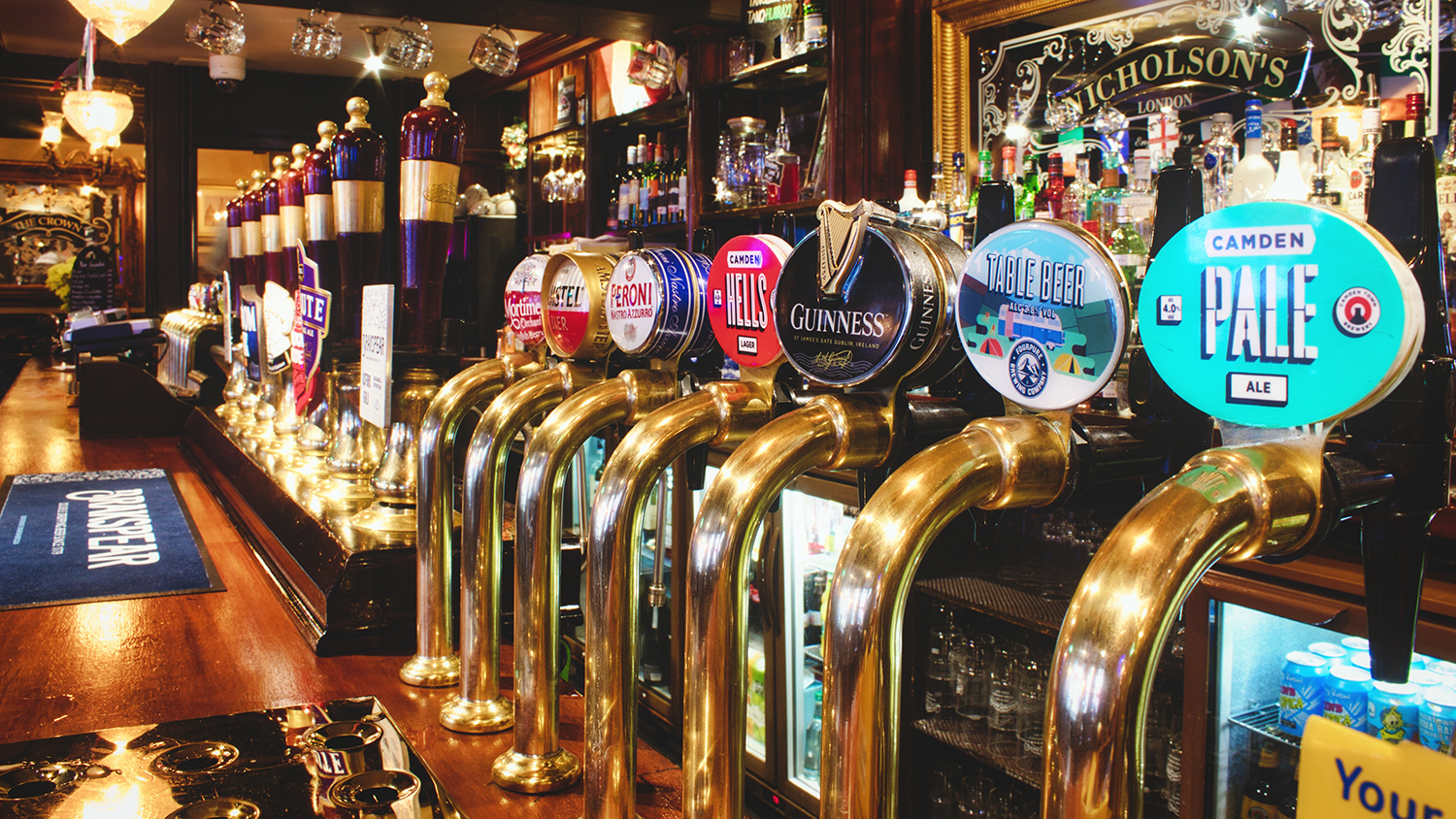By Toby Patrick, Contributor
It could be argued that times have never been tougher for the hospitality industry. Younger generations drink far less alcohol compared to the groups who came before them and dine-out restaurants have to compete with an abundance of takeaways and fast-food joints that can now operate solely through third-party delivery apps.
Despite this change in attitude and preferences, certain establishments still find themselves regularly at capacity and able to charge a premium. So, what are these places doing that others aren’t?
The answer often lies in how they position and differentiate themselves.
What Do We Mean by Market Positioning and Differentiation?
In marketing, positioning and differentiation are closely aligned, and you’ll often find them in the same sentence. Market positioning refers to where your business sits in the market. To determine this, a positioning map is often used with X and Y axes, each with an opposite variable at either end.
For example, you may select price and quality as your two axes. A fast-food restaurant like McDonald’s would be in the lower left of the graph as it’s a low-cost, low-quality option. At the other end of the scale would be Michelin star restaurants which charge a high price but provide high-quality food and service.
Differentiation refers to how you stand out above your competitors. There might be many restaurants in your area that offer great food and great service at a similar price tag. But why is one always busier than the others? And if a new restaurant enters the mix, what can they do differently?
How to Differentiate a Pub, Bar, or Restaurant?
So, if you know you need to differentiate your venue from competitors, the next question is how do you do this?
You might be tempted to say serve better food, hire better staff, or charge a cheaper price. While these may work, this is what everyone is striving for, and remember, you want to be different to your competitors.
Remember when we said that differentiation and positioning are often mentioned in the same sentence? Well, that’s because differentiating your venue often comes down to the way you position it.
Think of how an Italian restaurant could be positioned to appear different to competitors. A restaurant, an Italian restaurant, and an Italian pasta bar all paint slightly different pictures in the minds of potential customers. Despite all three actually being the same business, a pasta bar makes the venue appear far more unique than if it was positioned simply as a new restaurant.
Examples of Differentiation
The venues below are all examples of restaurants and bars that offer a completely unique offering that differentiates themselves from other venues in their area.
Washhouse, UK
This secret bar secret bar disguises itself itself as an old-fashioned laundrette and is accessed through a hidden door behind a giant tumble drier. Once inside, the drinks are as quirky as the building itself. You sure won’t find Coco Pops-themed cocktails anywhere else!
Clinic, Singapore
If your offering isn’t for everyone, you’re usually doing something right. And that’s certainly the case when it comes to Singapore-based bar and restaurant, Clinic. Everything here is hospital-themed from the wheelchair seating to your drinks being served in IV bags and test tubes.
Alcotraz, UK
Combining two separate activities is a great way to differentiate, and many venues are choosing to exist as part bar, part immersive experience. That’s definitely the case with Alcotraz in Liverpool where you’ll drink in a prison-themed bar while actors put on a show at the same time. That’s only if you’re able to smuggle your alcohol in past the guards though!
Benefits of Differentiation
Unique Selling Point
The main benefit of differentiating your business from competitors is that it immediately gives you a unique selling point. For instance, a vegan restaurant’s unique selling point of being able to offer a fully vegan menu will appeal to vegans and vegetarians who usually have much more limited options when browsing the menu.
Less competition
Targeting a smaller segment of the market leaves you with fewer direct competitors. And if you have fewer competitors, you can obviously charge a higher price to your customers. Clinic, which we mentioned above, isn’t just quirky, it’s unlikely to have any hospital-themed bars competing with it.
Specialist
Even if it’s not actually true, niching down often leads to customers to perceive you as an expert or specialist within your area. For example, the best steak in a town might be served by a gastropub, but if it’s your first time visiting the town and you want to eat steak for dinner, you’re more likely to book a table at a local steakhouse than a gastropub.
Tips for Differentiating Yourself as a Hospitality Business
You could undertake a brand workshop with a digital marketing agency which will help you map out where your brand sits in the market. They’ll also uncover your why, and what makes you different from competitors, or what doesn’t!
If you don’t have the budget to work with an agency, carry out your own market research. Have a look at your competitors and ask what is every other business doing. Then don’t do that! Think outside the box and come up with an offering that nobody else is offering.
Consider the examples mentioned above, each one of those businesses offered something completely new to the market, which could never have been achieved by simply trying to top their competitors’ offerings.















